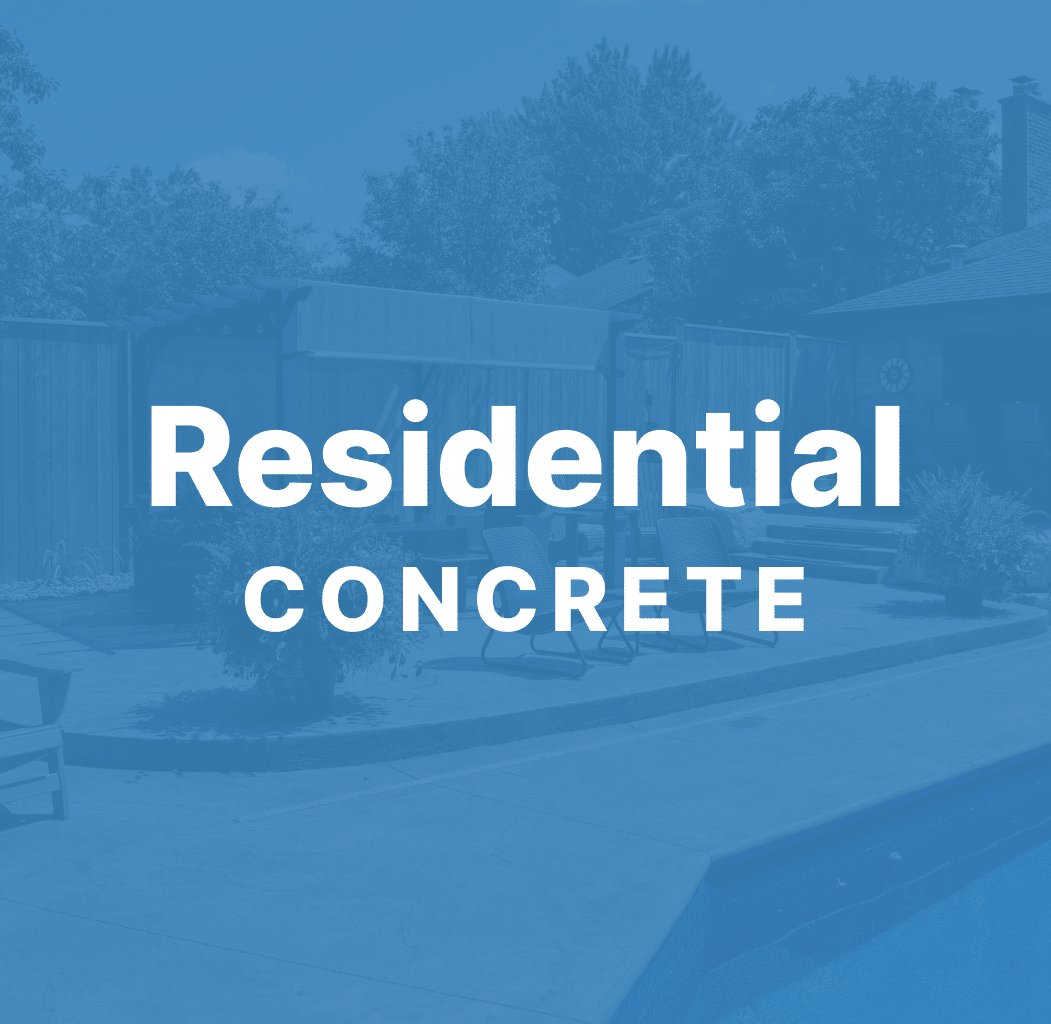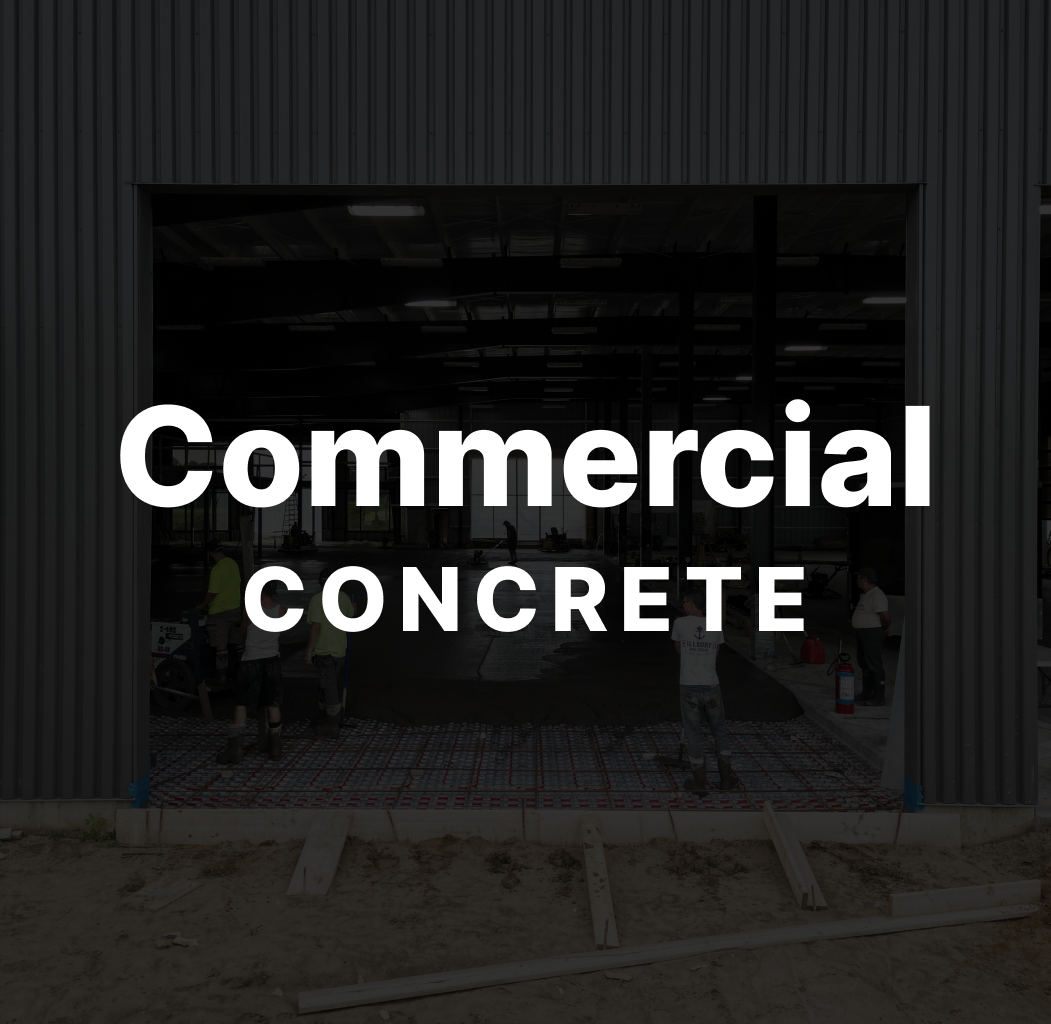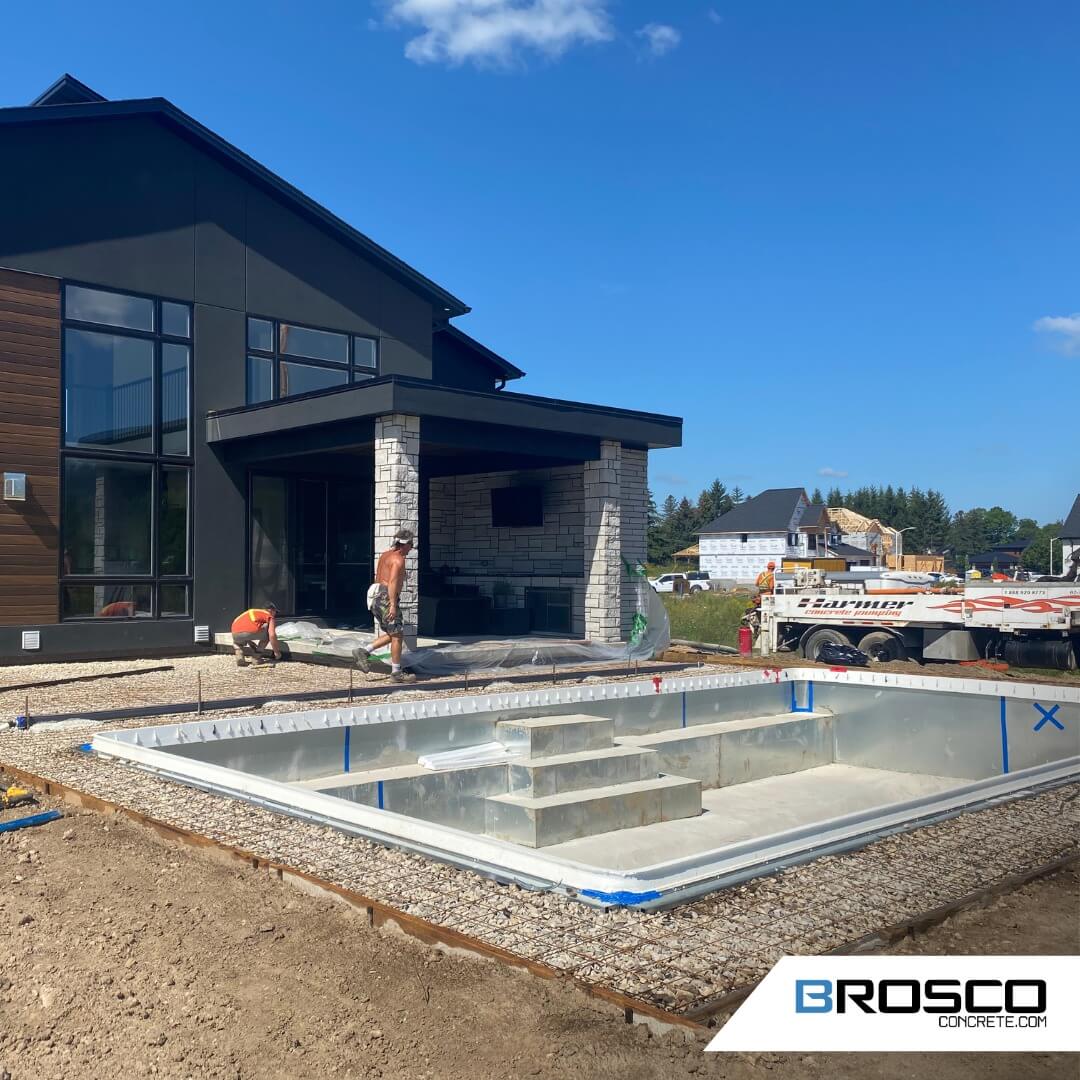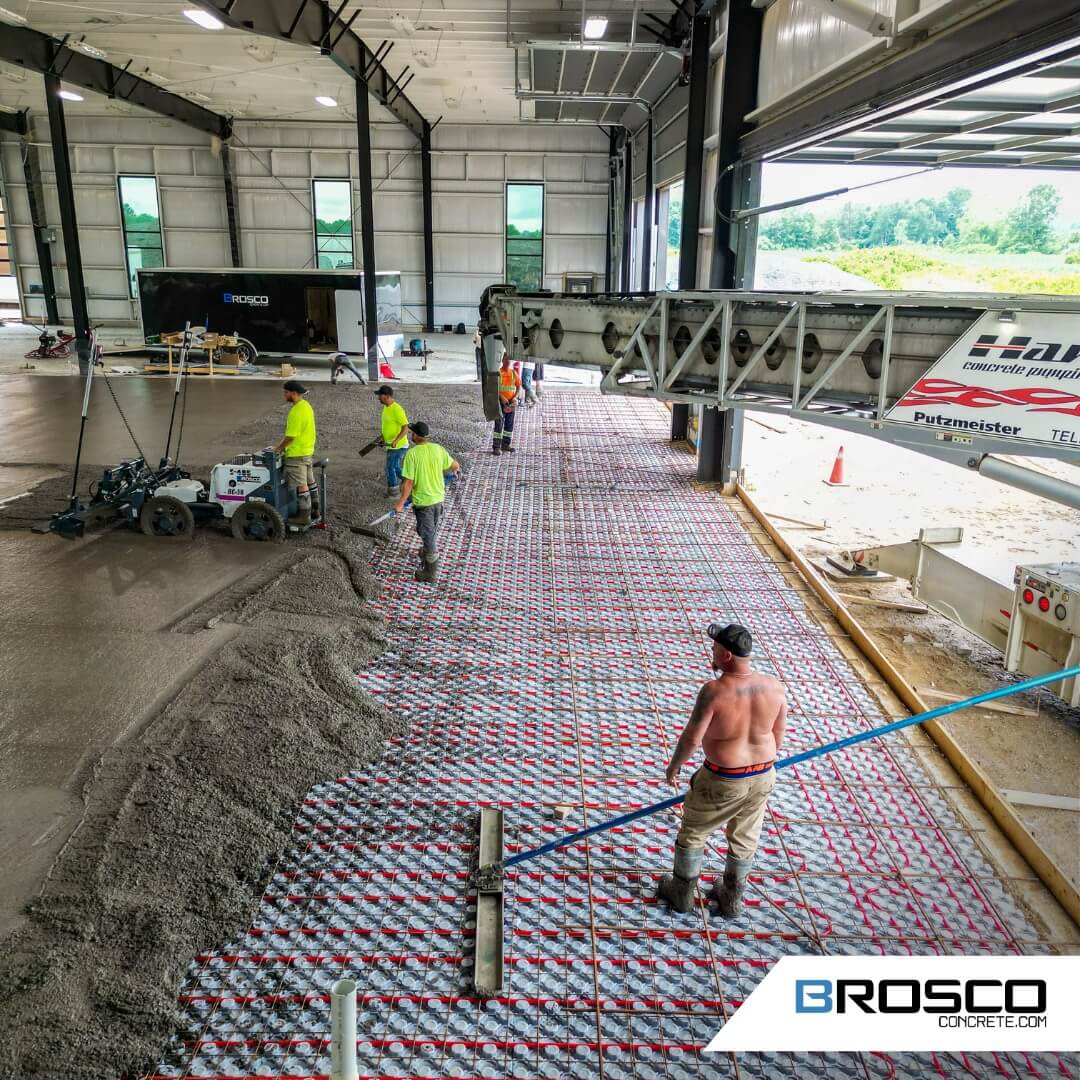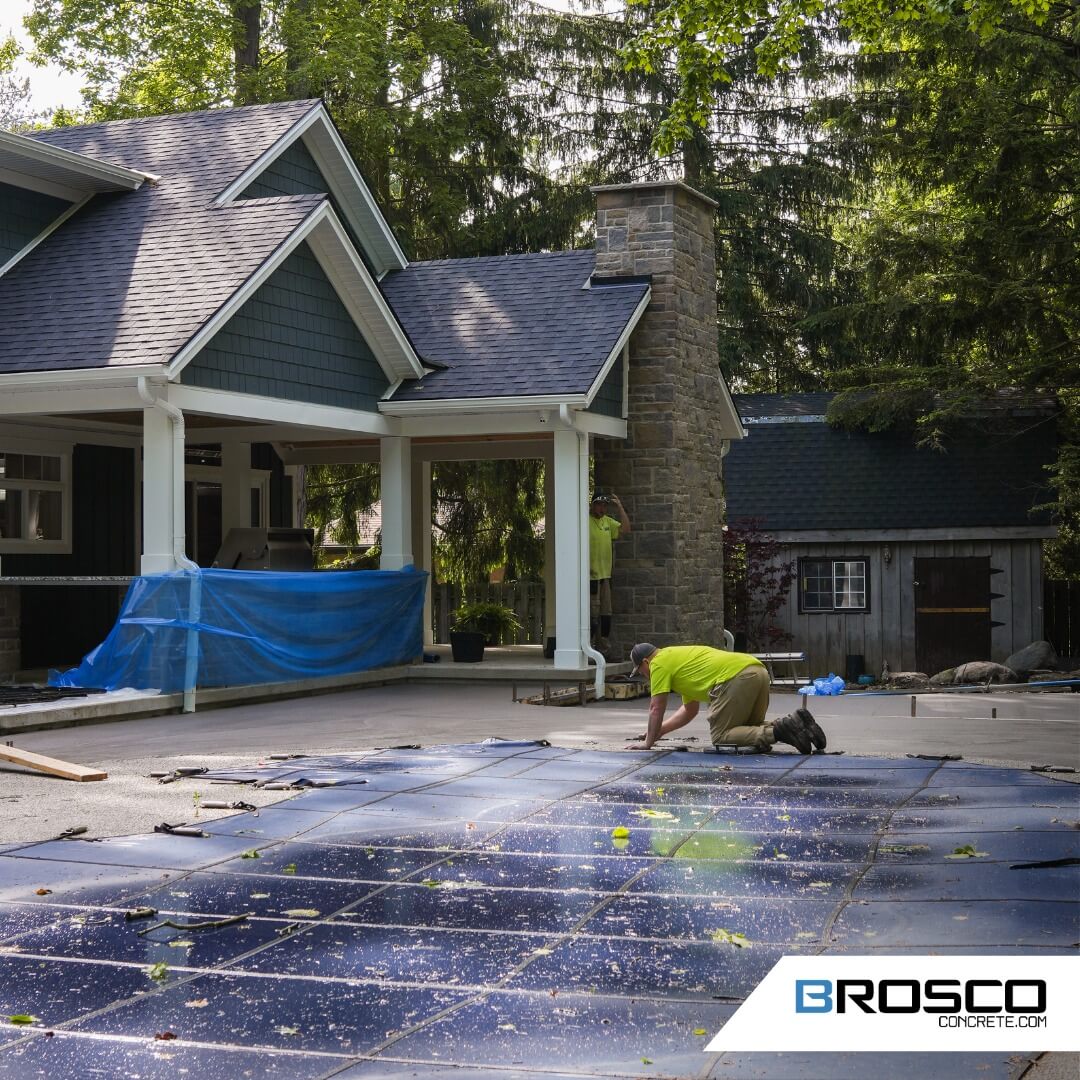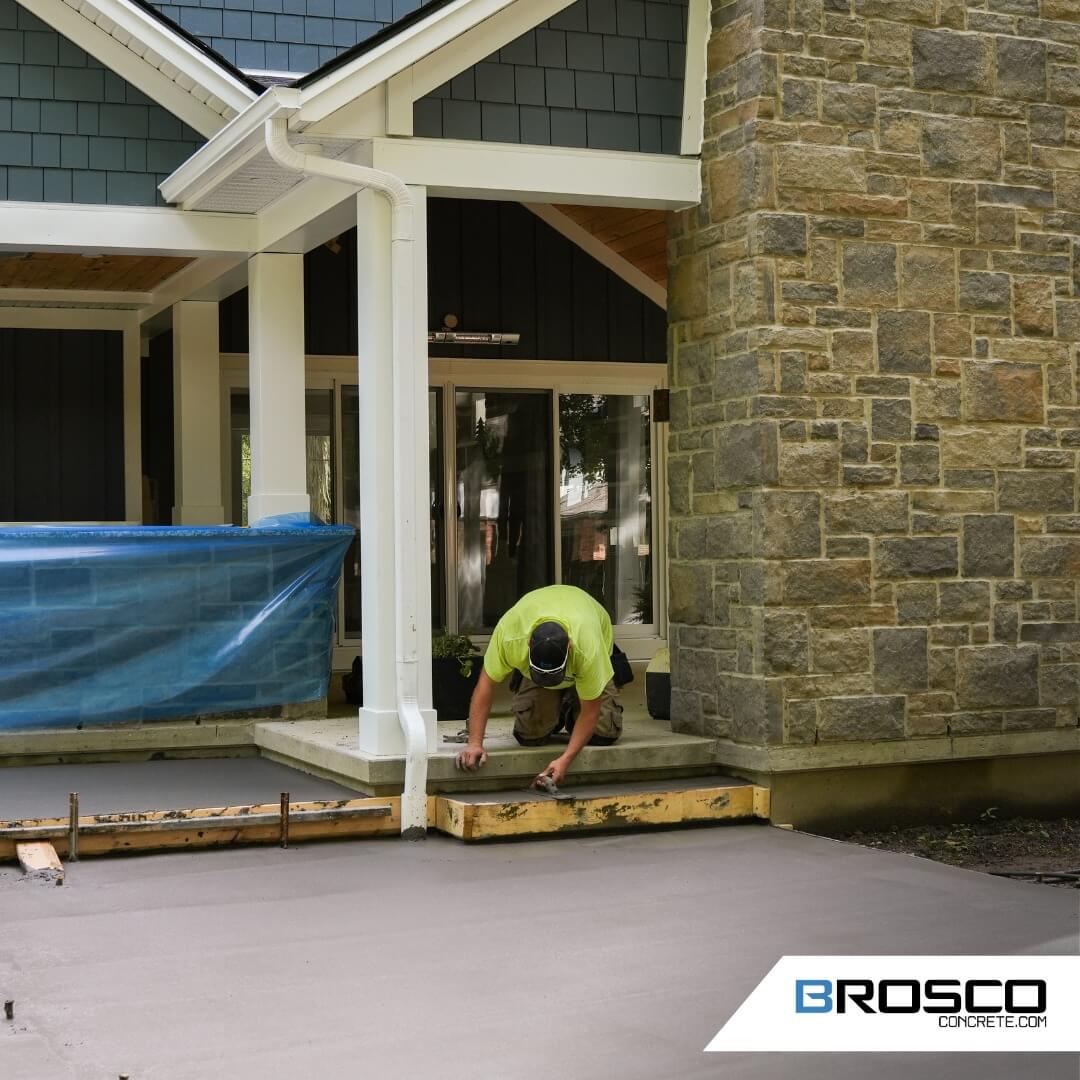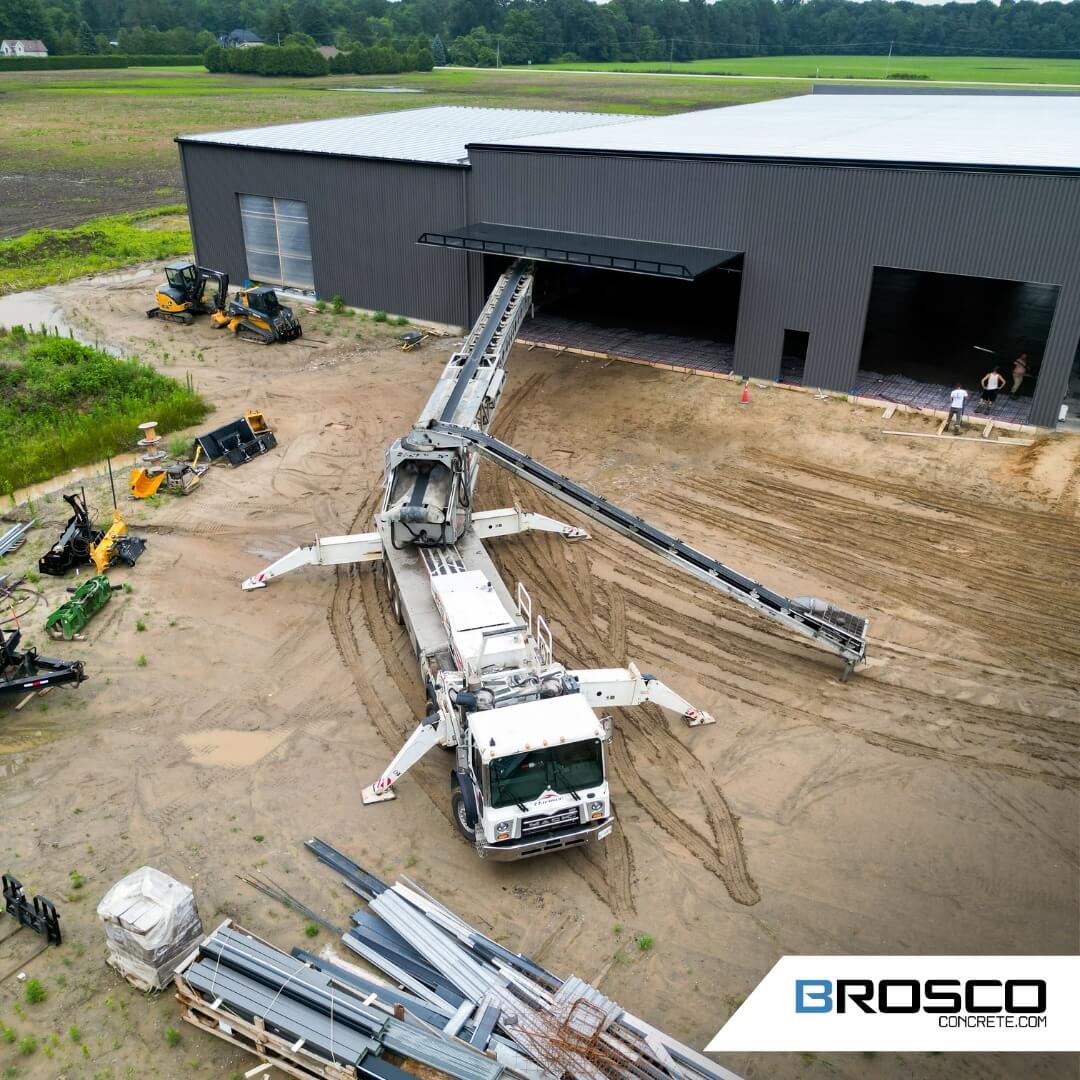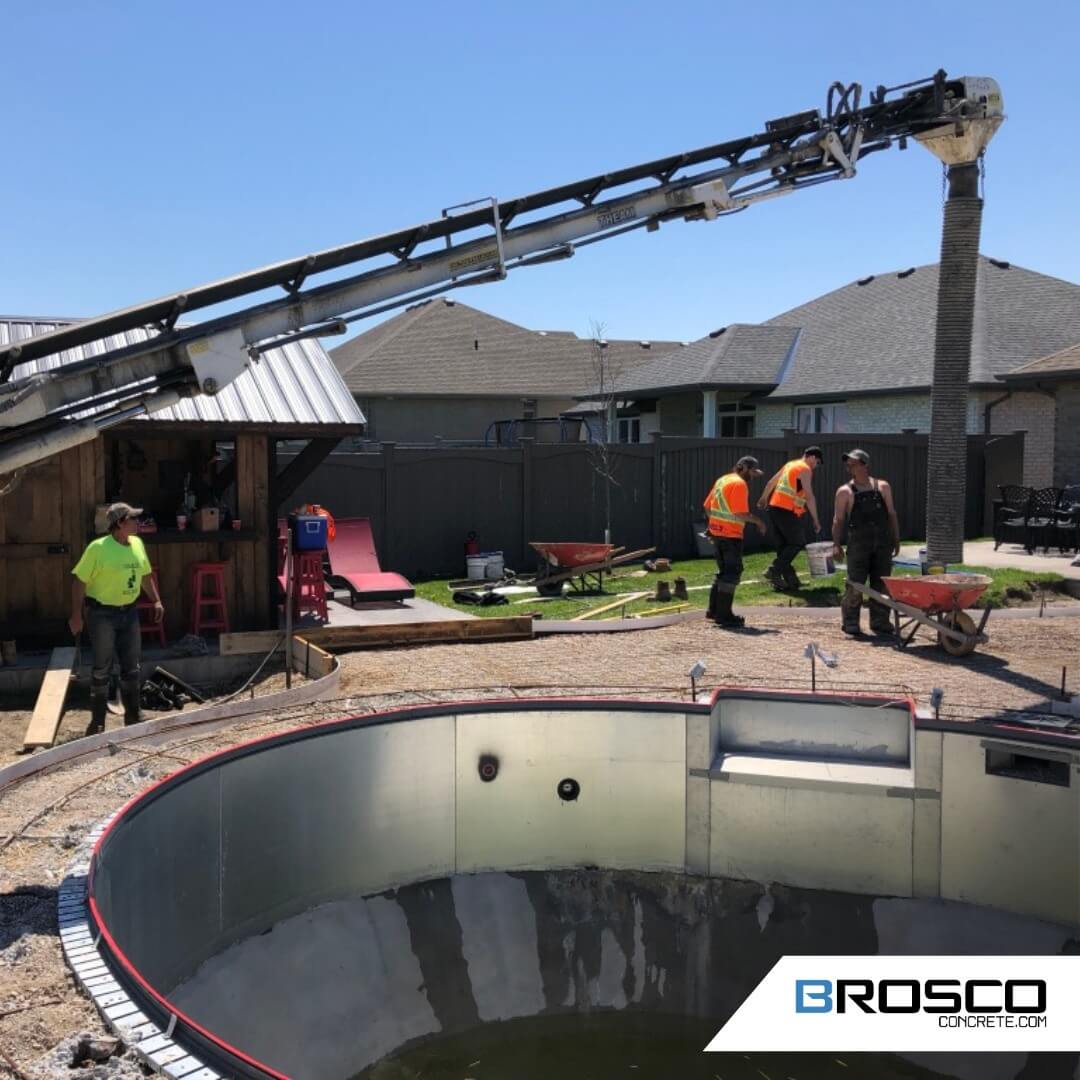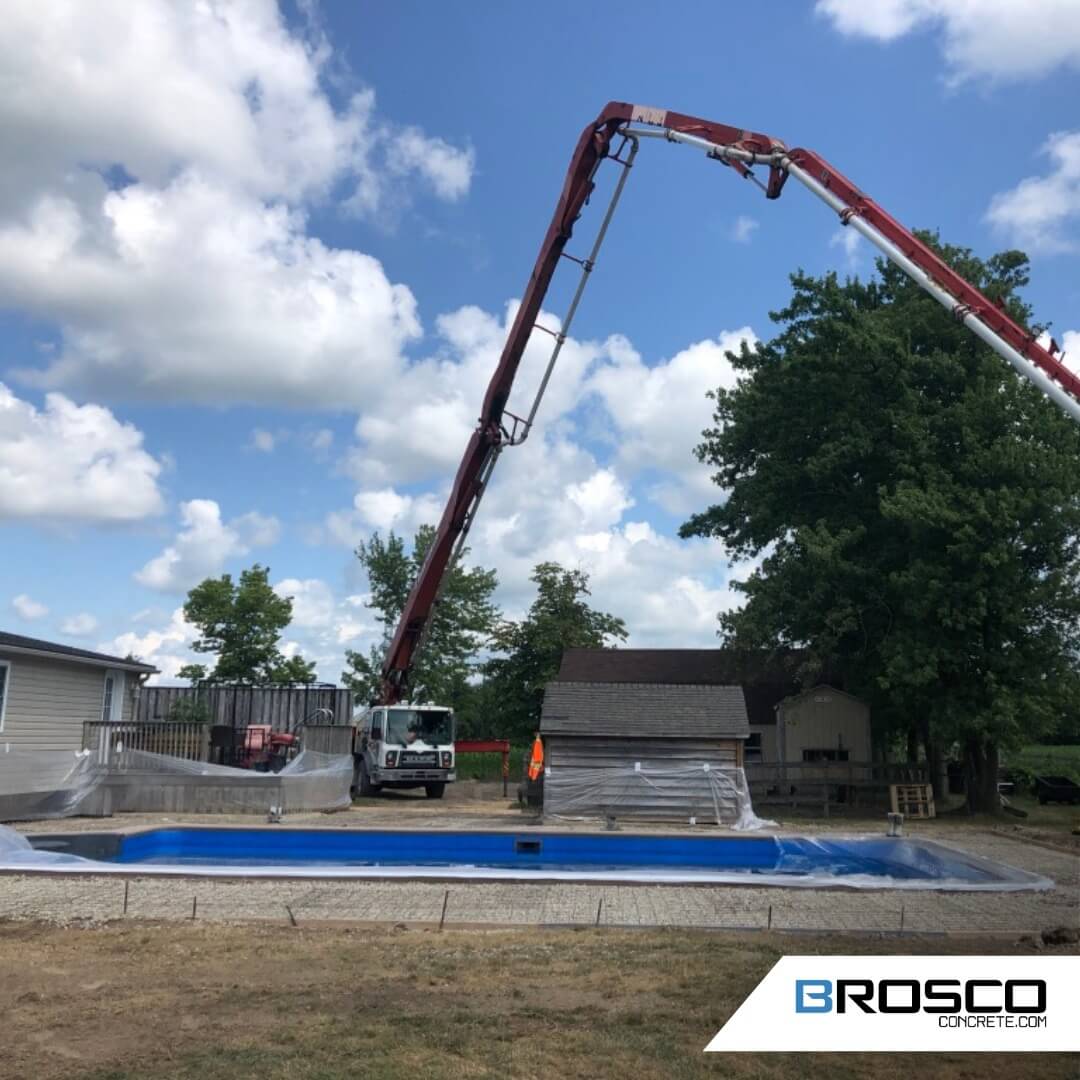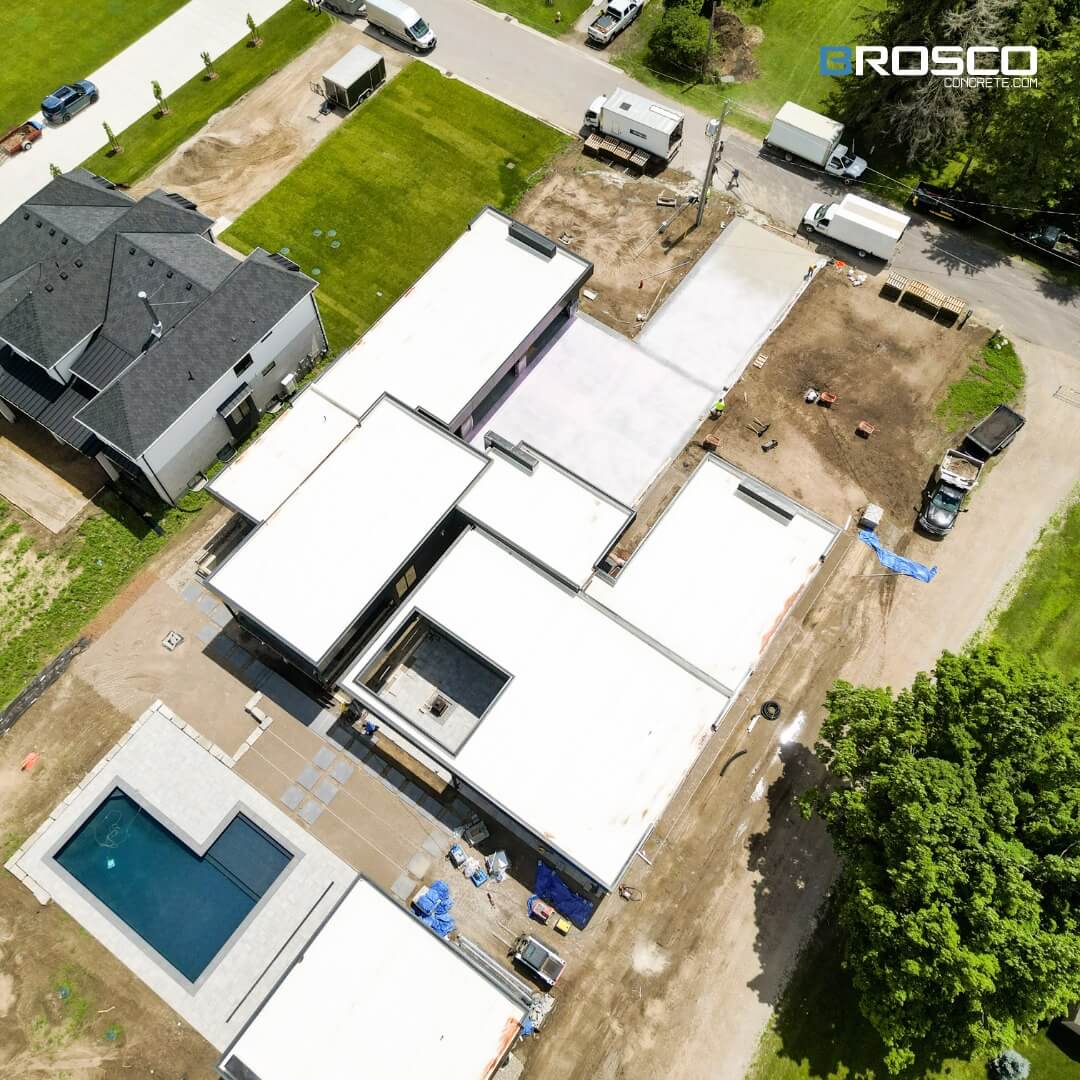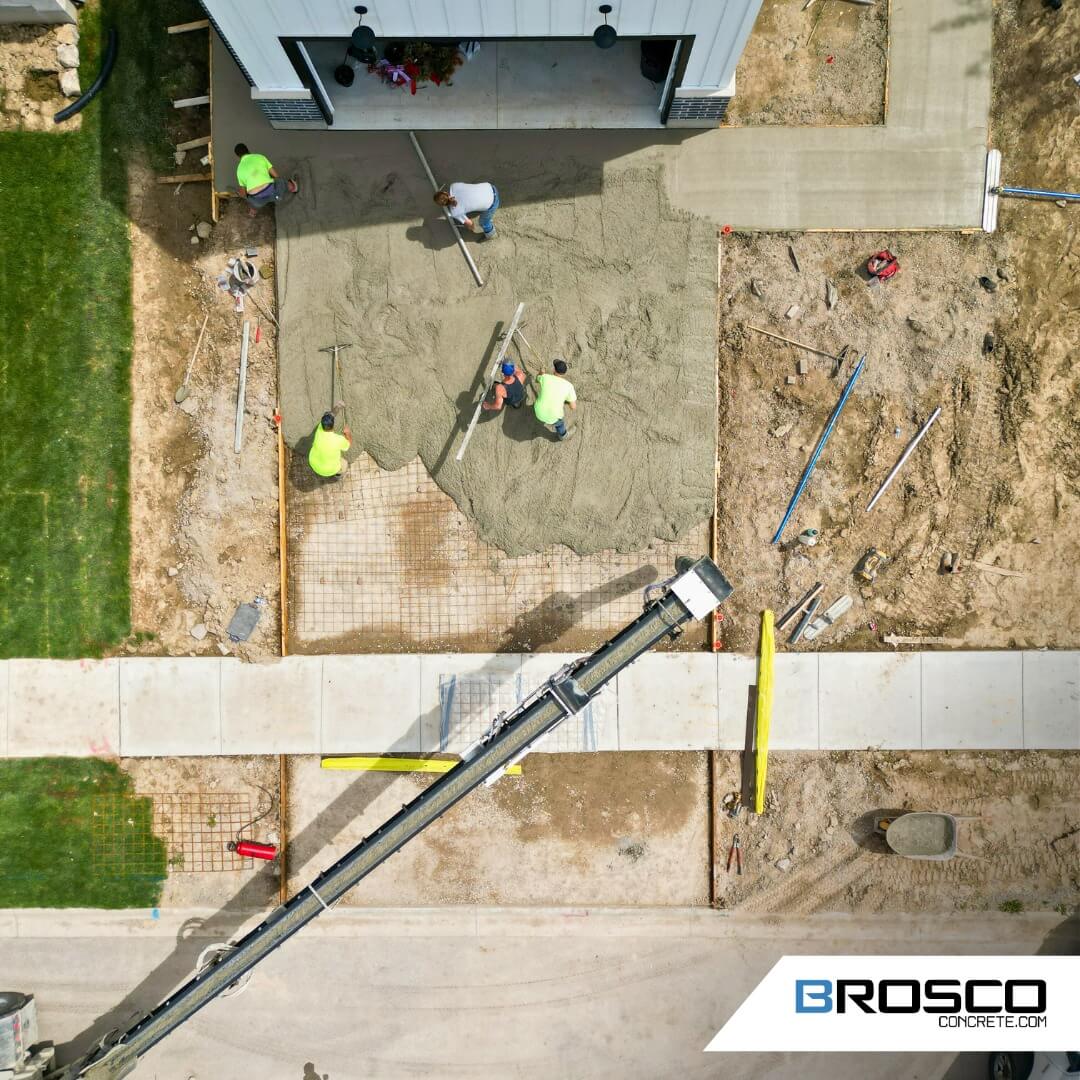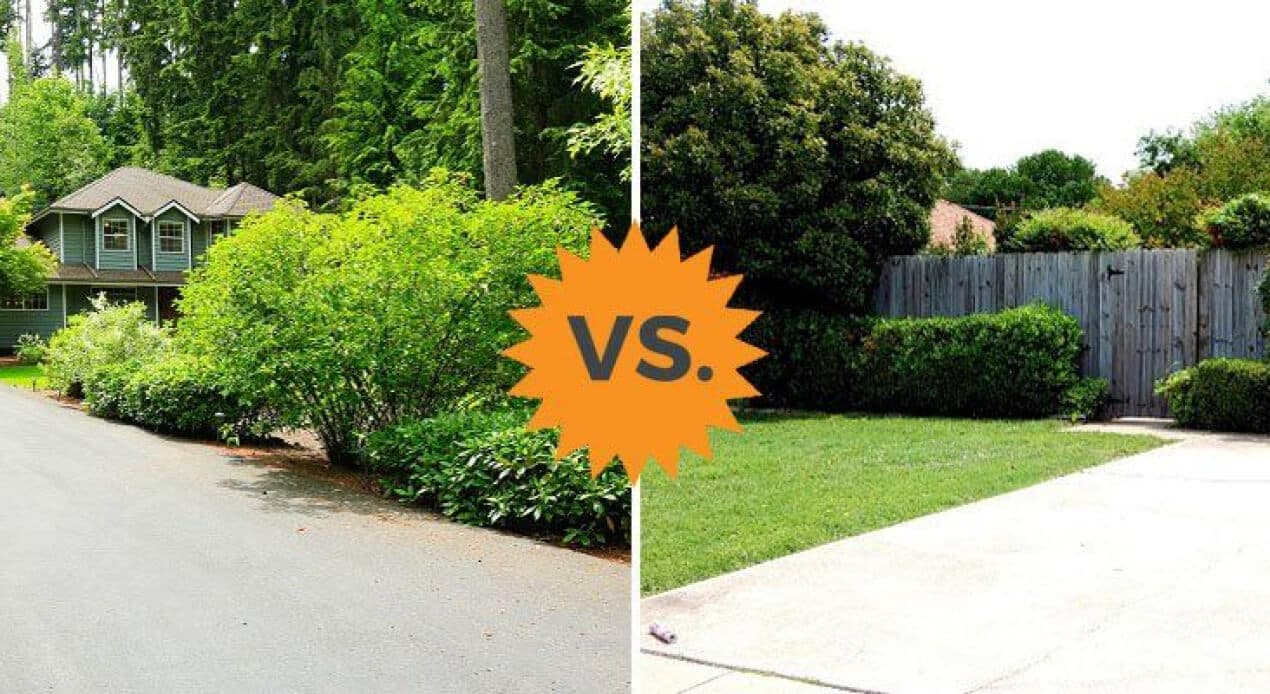
Asphalt vs. Concrete Driveways – Let’s Compare
Asphalt vs. Concrete driveways – which driveway material is right for you?
First, let’s take a look at the characteristics of each type of material for driveways. What’s the difference between asphalt and concrete?
This will help you choose which option is best for your driveway. Sound like a plan?
What are the characteristics of an asphalt driveway?
To prepare to install asphalt driveways, the foundation is dug down and you place a layer of crushed gravel, followed by a layer of hot asphalt. Then you roll and compress the asphalt, ensuring you angle the edges slightly. It should be sealed after a few months to a year.
PROS & CONS
Asphalt driveways are cost-effective, stable, and easy to maintain in the winter. They require more routine, expensive maintenance and have a shorter lifespan than concrete driveways.
What are the characteristics of a concrete driveway?
To prepare for a concrete driveway, we frame the area with wooden form boards. Then we excavate the soil and fill it with a base such as stone and sand to stabilize the ground and compact it to support the weight of the concrete.
If required, we can reinforce the area with steel or by adding a special compound to the concrete mixture itself. Then we quickly pour the concrete and flatten it followed by texturing or adding decorative finishes.
We cut contraction joints to prevent cracking and finally cure the finished concrete pad.
Advantages & Disadvantages
Concrete driveways are durable with a longer lifespan than asphalt driveways. They have endless options for customization to provide stunning looks and require little maintenance beyond periodic resealing. While initially more expensive, the lower maintenance costs and longer lifespan reduces the overall cost.
Asphalt vs. Concrete Driveways – How do they compare?
Asphalt is typically cheaper than concrete but cost fluctuates with crude oil prices. Over time, the cost of resealing and resurfacing will cost more.
Concrete driveways have additional finishes and stains available, which can add to the price.
With proper maintenance, asphalt can last 30 years. It is a softer material, so it deteriorates faster than concrete, especially if traffic is frequent or heavy.
Concrete is more durable and lasts longer than asphalt and can last over 50 years with occasional repairs and degreasing.
Both asphalt and concrete are susceptible to cracks which you must repair.
You should resurface asphalt every 3 – 5 years.
Asphalt typically requires repairs more often, but asphalt cracks are easier to fix.
Standard concrete doesn’t require regular maintenance, but sealing enhances the appearance. Degreasers can help with oil and fuel that can build up over time.
Learn more about the best time to seal concrete here.
Concrete is more susceptible to cracks or heaving in extremely cold climates. Concrete repairs are usually more difficult and costly.
Asphalt is limited to black.
Concrete allows staining, tinting, etching, and stamping to achieve beautiful, unique looks to add curb appeal to your home. These different finish options provide alternatives to the standard, natural, grayish colour of concrete.
Asphalt can soften and become sticky in the hot sun. It is not a fan of extreme heat.
Constant freezing and thawing can increase the risk of cracking and road salt used in the winter can erode concrete surfaces.
Cost-effective but not ideal for busy families with a lot of traffic and heavy use or in climates with high heat. Asphalt driveways lack aesthetic appeal.
The initial investment is higher but concrete surfaces are more durable than asphalt. They will last longer and provide more customization for curb appeal. This is the ideal choice if you plan to stay in your home for many years, prefer the beauty and style concrete provides, and need it to stand up to heavy wear and tear.




